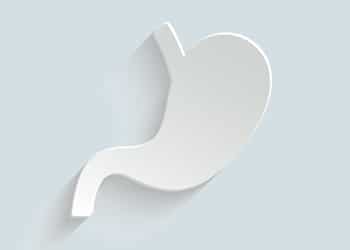Gastric Balloon Lawsuit
A gastric balloon lawsuit may be an option for people who used the weight-loss devices and experienced serious complications such as over-inflation and acute pancreatitis. According to the U.S. Food and Drug Administration (FDA), complications associated with the Orbera Intragastric Balloon System and the ReShape Dual Balloon System may have led to the death of at least a dozen patients. Affected patients and their families may be eligible to pursue compensation for damages with the help of a defective medical device attorney.
If you or a loved one have been adversely affected by a potentially defective medical device, contact Attorney Group to learn about your options. We offer free, no obligation consultations. We can help answer your questions, and if you choose to pursue a claim we can connect you with an affiliated attorney who can assist you throughout the legal process.

Have You Seen a Gastric Balloon Lawsuit Commercial?
You may have seen a commercial on television about gastric balloon litigation and wondered whether you or a loved one have been affected by the potentially defective weight-loss treatments and, if so, whether you are eligible to pursue a claim against the manufacturer or distributor.
The purpose of this article is to provide you with additional information about recalls, FDA safety alerts, lawsuits, and settlements involving potentially defective gastric balloons used to treat obesity so that you have a better understanding of your options.

What are Gastric Balloons?
Gastric Balloons, also known as endoscopic intragastric balloon systems, are weight-loss devices used to treat obesity when diet and exercise are not enough. Intragastric balloons are temporarily placed into the stomach through the mouth, using a minimally invasive endoscopic procedure, while the patient is under mild sedation. Other systems may consist of multiple balloons that are placed in the stomach by way of a capsule that the patient swallows.
Gastric balloons work by limiting the amount of food a person’s stomach can hold, creating a feeling of fullness earlier than usual. The devices are typically removed within six to twelve months, depending on the type of balloon.
Approved Intragastric Balloon Devices
As of 2018, there are three types of gastric balloons available in the United States:
- Orbera Intragastric Balloon System (approved in 2015) – Developed and manufactured by ReShape Medical, Inc., this system uses two balloons that are filled with saline and methylene blue dye.
- ReShape Integrated Dual Balloon System (approved in 2015) – Manufactured by Apollo Endo-Surgery uses one balloon filled with saline only.
- Obalon Balloon System (approved in 2016) – The Obalon Balloon System consists of up to three balloons that are delivered to the stomach inside a swallowable capsule. The capsule is attached to a thin inflation catheter used to inflate the balloons with air.
Since 2016, the FDA has received reports of complications associated with the Orbera Intragastric Balloon System and the ReShape Dual Balloon System. Complications include over-inflation of the devices and acute pancreatitis. Additionally, the FDA has received reports of at least twelve deaths related to the use of the Orbera Intragastric Balloon System and the ReShape Integrated Balloon System.
To date, the concerns addressed by the FDA have only been observed with the use of liquid-filled intragastric balloons and have not been reported for the Obalon Balloon System.
Gastric Balloon Side Effects
Side effects most commonly associated with intragastric balloon systems include:
- Nausea
- Acid reflux
- Vomiting
- Stomach cramps
Other side effects may include indigestion, bloating, flatulence, and diarrhea.
Other Gastric Balloon Complications
Since 2016, the FDA has received reports of complications associated with the Orbera Intragastric Balloon System and the ReShape Dual Balloon System. Complications include over-inflation of the devices and acute pancreatitis.
- Over-inflation – Symptoms of balloon over-inflation included intense abdominal pain, swelling of the abdomen (abdominal distension) with or without discomfort, difficulty breathing, and/or vomiting. The event may require premature removal of the balloon to resolve the patient’s symptoms.
- Acute Pancreatitis – Although pancreatitis is not listed as a possible complication related to the Orbera or ReShape balloon systems, the FDA notes that a separate set of reports involving the brands of liquid-filled balloons indicate that acute pancreatitis developed in several patients due to the compression of gastrointestinal structures created by the implanted balloon(s). All of these cases required premature device removal, and four of the patients required hospitalization. Symptoms of acute pancreatitis in the presence of a liquid-filled intragastric balloon system included severe abdominal and back pain. The reports indicated that pancreatitis can occur as soon as three days after implantation.
- Bowel Obstruction – In rare cases, a gastric balloon may obstruct the bowel for a variety of reasons, including spontaneous deflation or subsequent migration into the small intestine. Obstruction can lead to other complications such as abdominal pain, abdominal swelling, vomiting, and constipation. When the bowel does become obstructed, surgery may be needed to retrieve the balloon.
- Gastric Perforation – According to an article published in the journal Surgery for Obesity and Related Diseases, gastric perforation related to the use of intragastric balloons is a rare but serious complication of the devices. Gastric perforation occurs when a hole forms in the gastrointestinal tract (stomach, large bowel, and small intestine). Complications may include bleeding, sepsis, abscesses in the belly, wound infections, bowel infarction. In some cases, surgery may be needed to bypass a damaged portion of the gastrointestinal tract.
- Esophagitis – Esophagitis, the inflammation of the esophagus, is a rare complication associated with gastric balloon systems. The inflammation is often a result of acid reflux in the esophagus, which can lead to the erosion of the internal wall of the esophagus.
FDA Warnings
After receiving multiple reports regarding complications associated with liquid-filled intragastric balloon systems, the FDA began notifying health care providers and gastric balloon patients about two specific adverse events: over-inflation and acute pancreatitis.
On February 9, 2017, the FDA warned health care providers of an adverse event involving the over-inflation of liquid-filled intragastric balloon systems with air or with more liquid (spontaneous hyperinflation) in patients’ stomachs.
Additionally, the FDA alerted health care providers of the possible development of acute pancreatitis. Over-inflation or the development of acute pancreatitis could result in the need for premature device removal.
In August 2017, the FDA updated its safety communication to alert health care providers of five reports of unanticipated deaths that occurred since 2016. These deaths occurred in patients with liquid-filled intragastric balloon systems, including four reports involving the Orbera Intragastric Balloon System, and one report involving the ReShape Integrated Dual Balloon System. The FDA noted that all five reports indicate that patient deaths occurred within a month or less of balloon placement. In three reports, death occurred as soon as one to three days after balloon placement.
In June 2018, the FDA issued an updated safety alert stating that since 2016, the FDA has received reports of a total of 12 deaths that occurred in patients with liquid-filled intragastric balloon systems worldwide. Seven of these 12 deaths were patients in the U.S. (four with the Orbera Intragastric Balloon System, and three with the ReShape Integrated Dual Balloon System).
Lauren A. on May 16, 2016
Attorney Group reviewed by:"These guys are a pleasure to work with -- very strategic and very responsive, which makes for a great business partner! I can tell that they are passionate about making sure all clients get the attention and expertise they deserve."Rating: 5 ★★★★★
Has There Been a Gastric Balloon Recall?
Although there has not been a gastric balloon recall, adverse events associated with the devices may lead to serious injury and other complications.
Affected individuals who suffered serious complications as a result of potentially defective liquid-filled intragastric balloon systems could pursue a claim against the manufacturers that failed to disclose known risks associated with the devices.
Failure to warn of side effects of a drug can be a basis of medical device company liability, regardless of whether the device has been recalled.
Is There a Gastric Balloon Class Action Lawsuit?
At the time of this article’s publication, a gastric balloon class action lawsuit action has not been filed on behalf of patients who suffered serious complications. Gastric balloon lawsuit attorneys are doubtful that a class action will be certified for patients who are adversely affected by the device.
Instead, if multiple lawsuits are filed against the manufacturers, alleging injuries and other damages caused by adjustable valves, shunts and similar medical devices, it is anticipated that these potential lawsuits will be consolidated for discovery and other pretrial proceedings.
When cases are consolidated in this way in federal court it is called multidistrict litigation (MDL), and on a state level it is known as a state court consolidated proceeding.
MDLs are distinct from class actions, and it is generally agreed that consolidating cases instead of proceeding in a class action is a more efficient and effective way of handling claims arising from injuries caused by defective medical devices.
In most cases that proceed in an MDL or state court consolidated proceedings, after a certain period of time initial trials, also known as bellwether trials, take place. The purpose of these trials is for the parties to get an idea of the types of evidence and arguments that will made, as well as to see how juries will respond to the evidence and arguments.
After a certain number of cases have been tried, the parties are in a better position to determine whether a case can be settled.
Have There Been Gastric Balloon Lawsuit Settlements?
In some cases, litigation involving defective medical devices may settle early in the claims process. However, it is not expected that there will be any gastric balloon lawsuit settlements at this time. Instead, it is expected that adjustable valve and shunt lawsuits will be consolidated in federal court through an MDL. Gastric balloon lawsuit attorneys note that the outcome of any case is never guaranteed, and past results are not necessarily predictive of future outcomes.
(888) 888-0612
Gastric Balloon Lawsuit News
- June 2018FDA issues an updated safety alert stating that since 2016, the agency has received reports of a total of 12 deaths worldwide potentially related to the use of liquid-filled intragastric balloon systems.
- August 2017FDA updates a safety communication to alert health care providers of five reports of unanticipated deaths that occurred since 2016 in patients with liquid-filled intragastric balloon systems.
- February 2017FDA warns health care providers of adverse events involving the over-inflation of liquid-filled intragastric balloon systems as well as the possible development of acute pancreatitis.
How a Gastric Balloon Lawsuit Attorney Can Help
Medical device makers have a duty to provide safe products. If there are risks of harm associated with their products, they also must provide adequate warnings. If a medical device maker fails to fulfill this duty, it could be held liable in lawsuits for injuries that may result.
People injured by defective gastric balloons may be eligible to recover money for:
 Medical Expenses
Medical Expenses
 Lost Wages
Lost Wages
 Pain and Suffering
Pain and Suffering
The families of those who have died may be eligible to recover money for funeral expenses and the pain that comes with losing a loved one.





